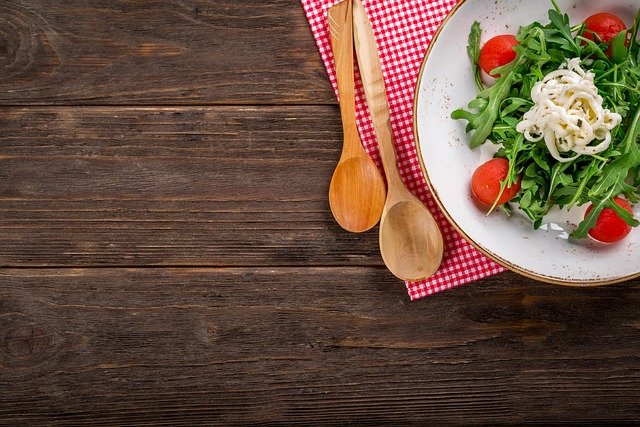
Nutrition: 7 Proven Plant-Based Strategies for Beginners
Table of Contents
Introduction
Nutrition is the foundation of a healthy lifestyle. For beginners exploring plant-based eating, the sheer amount of information can be overwhelming. But what if starting this journey didn’t have to feel so complicated?
Plant-based nutrition is more than just avoiding meat; it’s about adopting strategies that fuel your body, uplift your energy, and simplify your choices. This guide will provide you with practical, beginner-friendly nutrition strategies to make your transition to a plant-based diet effortless, evidence-based, and sustainable.
Master Plant-Based Nutrition Without the Overwhelm
Starting a plant-based diet often leads to one common mistake: cutting out meat without replacing essential nutrients. Many beginners believe that removing animal products is enough, but they usually end up feeling fatigued or nutrient-deficient.
A better approach is to focus on balanced nutrition, ensuring you get fibre, healthy fats, plant-based proteins, and essential vitamins. Plant-based eating isn’t just subtractive; it’s addictive. You need to be intentional about what goes in, not just what comes out.
Nutrition-Packed Staples You Should Always Keep at Home
Stocking the right foods makes your journey easier. Always keep the following in your pantry:
- Legumes (lentils, chickpeas, black beans)
- Whole grains (quinoa, oats, brown rice)
- Nuts and seeds (chia, flax, almonds)
- Leafy greens (spinach, kale, arugula)
- Fruits and colourful vegetables
One study found that plant-based diets rich in whole foods can reduce the risk of heart disease by 32%. These staples provide protein, fibre, antioxidants, and minerals vital for beginners.
Nutrition Timing: When You Eat Matters
It’s not just what you eat — it’s also when. Planning meals helps stabilise blood sugar levels, boosts metabolism, and supports mental clarity.
Start your day with a protein-rich breakfast, such as overnight oats with flaxseeds or a tofu scramble with vegetables. Eat small meals every to –4 hours. This helps maintain steady energy levels, preventing midday crashes.
Hydration is part of the strategy. Sip water consistently throughout the day. For added benefits, try infused water with pink Himalayan salt, which helps maintain electrolyte balance.
See this natural hydration strategy in action.
Beginner Nutrition Mistakes to Avoid
Beginners often rely too heavily on packaged vegan foods. While convenient, these are usually ultra-processed and low in nutrients. Just because something is labelled as “plant-based” doesn’t mean it’s necessarily healthy.
Instead, choose whole, unprocessed options whenever possible. For example:
- Use avocado or hummus instead of vegan mayo
- Replace fake meats with grilled mushrooms or lentil patties
- Snack on nuts and fresh fruit rather than store-bought bars
Avoiding processed foods also improves gut health, as fibre from whole plants feeds your microbiome.
Budget-Friendly Nutrition for Plant-Based Eating
Worried about the cost? You’re not alone. Many people assume plant-based eating is expensive, but it doesn’t have to be.
Dry beans, frozen vegetables, bulk grains, and seasonal produce are all affordable and nutrient-dense options. Cooking at home in batches not only saves money but also saves time.
For even more cost-saving strategies, check out these essential nutrition tips from expert dietitians.
Mind and Mood: Nutrition’s Role in Brain Health
Food influences your brain more than you think. Omega-3 fatty acids found in flaxseed and walnuts can help boost mood and support cognitive function. B vitamins from leafy greens improve mental clarity.
Studies show that plant-based diets can help reduce symptoms of depression and anxiety when they include omega-rich seeds, whole grains, and dark, leafy vegetables.
By prioritising these foods, you’ll not only feel physically stronger, but you’ll also think more clearly.
What Can You Expect by Following These Nutrition Strategies?
Here’s the promise: By using the strategies above, you can expect:
- Higher energy levels within 10 days
- Improved digestion
- Better mood and focus
- Long-term sustainability with less stress
Eating plant-based becomes natural when your foundation is built on smart nutrition decisions.
Take Action Now
Start small: choose one strategy today. Perhaps it’s preparing a fibre-rich breakfast, buying dry lentils, or drinking infused water. These tiny decisions stack up.
Use the nutrition checklist below to plan your meals for the week. Stay consistent, stay curious, and let your body guide you.
Frequently Asked Questions
What’s the easiest plant-based protein source for beginners?
Lentils are an affordable, high-protein option that cooks quickly, making them perfect for meal prep.
Can I get enough iron from plant-based foods?
Yes. Spinach, lentils, tofu, and fortified cereals are good sources of iron. Pair with vitamin C-rich foods for better absorption.
Is it okay to eat frozen vegetables?
Absolutely. Frozen vegetables are nutritious, budget-friendly, and often retain more nutrients than their fresh counterparts.
How soon will I start to see the benefits of these nutrition strategies?
Most beginners report increased energy and better digestion within 7–10 days of consistent plant-based eating.
Do I need supplements?
You may need B12 and Vitamin D supplements. Consult a healthcare provider based on your individual needs.

